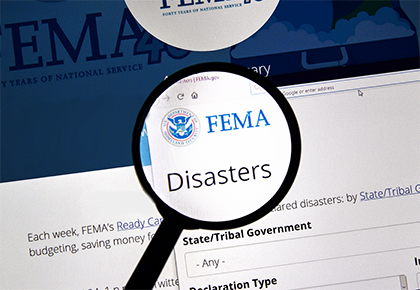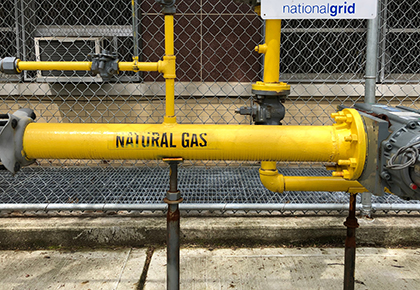-

Association Reserve Funding Strategies: Ensuring Your Budget's Success
As a board member, one of your top responsibilities is to maintain and improve your community’s physical property. But it can be tricky to budget for new amenities like a dog park or gate houses, or shared, common-area assets that will need to be replaced or upgraded years down the line such as roofing or building facades. -

Understanding the Condo Act of Ontario: A complete guide
The Condo Act of Ontario (also known as Condominium Act, 1998) is the primary legislation that governs the creation, management, and administration of condominiums in Ontario. Discover what your corporation should know. -

Multifamily Investment Activity in New York City
As different sectors of New York City’s economy recover from the COVID-19 pandemic, strong signs of life are emerging in multifamily rental property investment. -

Association Special Assessments: How to Avoid Them
For board members, special assessments are typically unwelcome necessities. They are primarily needed because reserves have been underfunded and must be supplemented to pay for large capital projects such as replacing roofs or mechanical equipment. -

Association Special Assessments: How to Avoid Them
For board members, special assessments are typically unwelcome necessities. They are primarily needed because reserves have been underfunded and must be supplemented to pay for large capital projects such as replacing roofs or mechanical equipment. -

Understanding condo special assessments
For board members, condo special assessments are typically unwelcome necessities. In this guide, discover what they are, why they may be needed, how to avoid them, and more. -

Association Special Assessments: How to Avoid Them
For board members, special assessments are typically unwelcome necessities. They are primarily needed when the association’s reserves are not sufficient to pay for large capital projects such as replacing roofs or mechanical equipment. -

How to avoid a condo special assessment
For board members, special assessments are typically unwelcome necessities. They are primarily needed because reserves have been underfunded and must be supplemented to pay for large capital projects such as replacing roofs or mechanical equipment. -

Understanding flood insurance in NYC for condos and co-ops
The rising cost of flood insurance and forthcoming changes to FEMA flood maps is a topic of discussion for condos and co-ops in the New York City area. -

New York City Council Extends Local Law 152 Inspection Deadlines for Boards & Building Owners
As of November 2021, the New York City Council has extended Local Law 152 gas pipeline inspection deadlines for boards and building owners through June 30, 2022. -

The 2022 Florida Legislative Session And Why It’s Important For Community Associations
On January 11, state lawmakers will assemble for the annual 60-day legislative session. This session will cover a list of key issues and promises to be an active one for community associations for two particular reasons: the impact of the collapse of Champlain Towers South in Surfside and the skyrocketing cost of property insurance. -

FAQ: How New York City’s COVID Vaccination Requirement Impacts Boards & Building Owners
As of December 27, 2021, New York City’s Department of Health requires building workers who perform in-person work to show proof of vaccination to their employer. -

FAQs: The impacts of prevailing wage in NYC
Beginning July 1, 2022, condominium and cooperative buildings in New York City must begin to pay building workers a prevailing wage or forfeit their eligibility for the Cooperative and Condominium Property Tax Abatement. -

How to choose the right Texas property management company: Qualities to look for
The property management industry is competitive, and everyone seems to think they offer the “best" service. But what does great property management look like? Learn what questions to ask to make sure you’re getting the service you deserve. -

The Do’s & Don’ts of Communicating Policy
Not sure how to communicate about policy with your residents? Follow these do’s and don’ts to guide your policy-making efforts and help your board obtain community buy-in. -

The Do’s & Don’ts of Communicating Policy
Not sure how to communicate about policy with your residents? Follow these do’s and don’ts to guide your policy-making efforts and help your board obtain community buy-in. -

What Great Looks Like: Getting the Property Management Service You Deserve
The property management industry is competitive, and everyone seems to think they offer the “best" service. But what does great property management look like? Learn what questions to ask to make sure you’re getting the service you deserve. -

Talent and Supply Chain Disruptions
Has your community association been affected by labor shortages? Learn more about supply chain issues and how to address them in your community. -

Talent and Supply Chain Disruptions
Has your community association been affected by labor shortages? Learn more about supply chain issues and how to address them in your community. -

Talent and Supply Chain Disruptions
Has your community association been affected by labor shortages? Learn more about supply chain issues and how to address them in your community. -

The Do’s & Don’ts of Communicating Policy
Not sure how to communicate about policy with your residents? Follow these do’s and don’ts to guide your policy-making efforts and help your board obtain community buy-in. -
Vendor Communication Best Practices: The Do’s and Don’ts
Open and effective communication among the board, management company and vendors is an important part of any community's operating budget and for improving residents' lifestyles. -

Looking Forward: Multifamily Investment, Construction, & Delivery Activity in New York City
The multifamily residential sector in New York City made significant strides in 2021 as borough economics continued to recover and transition into a post-pandemic paradigm. -

HOA communication: Do's, don'ts, and best practices
Implementing new policies within a community can be challenging, but when a board communicates effectively and gives residents a plan that outlines the necessity, process and benefits of a policy, they can avoid a lot of issues and get buy-in, too.